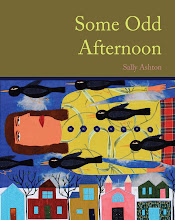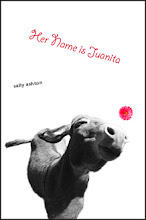Calvino, "Exactitude"
So, a poet's blog without a recognizable poem so far. Therefore, to rectify and exactify myself, I'm pasting in a poem of mine that appears in C&R Press' just released anthology, Breathe: 101 Contemporary Odes. I'm pleased to have this poem appear alongside so many remarkable odes; Breathe is a volume worth picking up despite the fact there's a typo in my title (doh!).
The poem is called
Remembered Lines on the Way to Stockton
My father owns the cattle on a thousand hills;
they graze among windmills scattered
along the interstate. Beneath a tinfoil moon
it’s not quite dark by nine. A silver-sided truck
roars, sucks at my passing car
flashes high beams to let me over.
Bott’s dots reflect the headlights,
comets chased by tails along an asphalt skyway.
I have traveled this road all the years of my life
a journey landscaped with exits never taken
into countryside where mown hay swells blonde
against alfalfa fields already regreening
and words rise from wild grasses
like surprised birds or flock along power lines
draped pole to pole beyond the city limit sign.
I pass the towers for a drawbridge.
It no longer raises over its river
the only ship a row boat upended on the bank.
Faded letters on a grain tower
advertise horses for sale. They died
half a century ago.
There is no map for places such as these
that recede in the rear view mirror
and await my return. It is dusk
forever here, with the scent of mowing.
Tonight I drive straight through to
My father’s mansion has many rooms,
if it were not so I would have told you.
A sudden oasis of farmyard hemmed
by walnut trees. The rising thrum of cricket.




